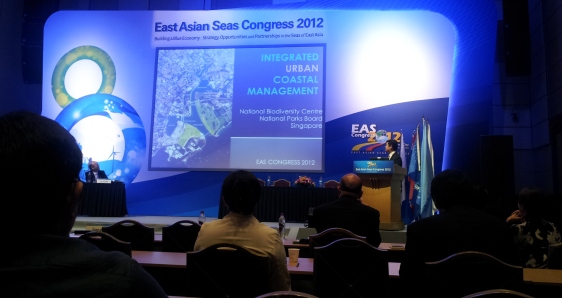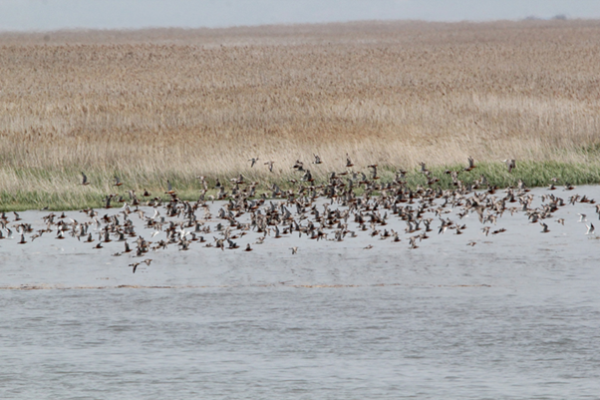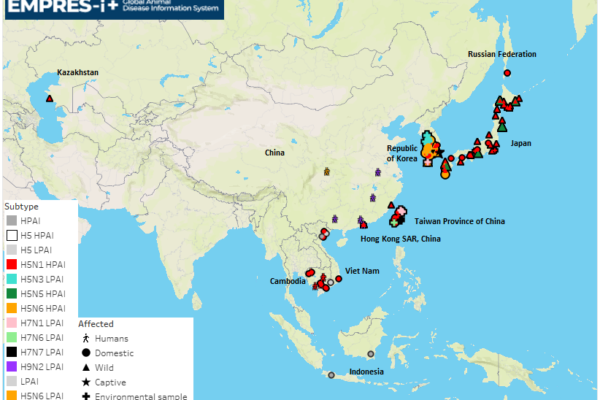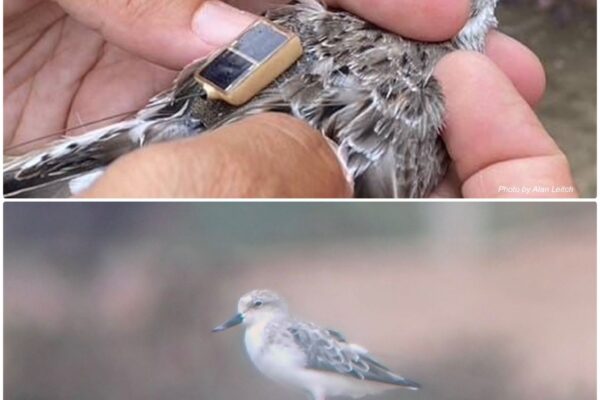
Mr. Lim Liang Jim of the Singapore National Parks Board, presenting the National IUCM Program © Minseon Kim
The EAS Congress 2012 was led by the Partnership in Environmental Management for the Seas of Eas Asia (PEMSEA), the Ministry of Land, Transport and Maritime Affairs (MLTM) of RO Korea and Changwon City with the support of GEF, UNDP and UNOPS. The meeting was held in Changwon, Republic of Korea on 9-13 July 2012 with 1000 participants from 25 countries and 23 regional and international oragnisations all over the world.With the theme, “Building a Blue Economy: Strategy, Opportunities and Partnerships in the Seas of East Asia”, the opening ceremony highlighted the progress and achievements in governance if regional/subregional seas within the framework of the Sustainable Development Strategy for the Seas of East Asia (SDS-SEA).Furthermore, on-the-ground achievements in Integrated Coastal Management (ICM) approach, and the remaining challenges and opportunities in building a blue economy in the East Asian Seas region were also covered.
The keynote speakers emphasized that the key to balancing growth and environment in the process of developing a diverse array of coastal and maritime industries and economic opportunities, is international cooperation and careful planning of coastal states. Changwon Mayor Park stressed the importance of collaboration among countries and stakeholders to deal with the problems of the oceans and he also underlined that the conference would serve a venue for sharing of best practices and strategies.The EAAFP Secretariat, represented by Minseon Kim, the Public Information Officer, participated in several workshops, especially Subtheme 3: Securing Ecosystem Services through Integrated Coastal and Ocean Management (ICM)and listened courteously to the ICM lessons and the best practices seeking benefits for both migratory waterbirds and people.
Subtheme 3 Workshop 3 on “Consolidation and Replication of ICM Good Practices and Lessons Learned” included as a series of presentations on the implementation of ICM in various sites and countries. The workshop aimed to determine the lessons learned in ICM about replication and consolidation in order to achieve the target of ICM coverage of 20 percent of the region’s coastline by 2015, as agreed by PEMSEA countries. Integrated Urban Coastal Management’s (IUCM) process facilitates Singapore’s coastal management by enhancing the coordination of governmental stakeholders, and coherence in governance, policies and processes. Mr. Lim Liang Jim of the Singapore National Parks Board stressed the three necessary principles with which the National IUCM Program is based: authority, efficiency, and transparency. He emphasized that the IUCM allows the different agencies and stakeholders to talk to one another while allowing the different sectors to perform specific tasks.




